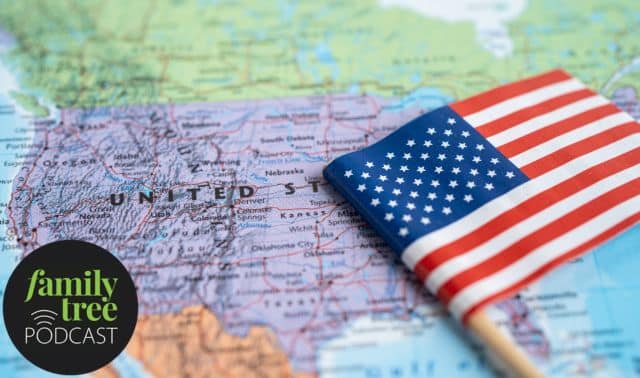Sign up for the Family Tree Newsletter! Plus, you’ll receive our 10 Essential Genealogy Research Forms PDF as a special thank you.
Get Your Free Genealogy Forms
"*" indicates required fields
Have you ever wondered what it would take to become a forensic genealogist? In this episode, Dr. Claire Glynn joins us to discuss a new program that trains participants how to apply genetic and traditional genealogy to forensic investigations. Plus: genealogy writing strategies, Findmypast tips and much more.
Relevant Links:
Family Tree Magazine Survey Page
Ep. 157: January 2022
In this episode:
Tree Talk (01:48)
Family Tree Magazine New Media editor Rachel Christian joins Lisa to talk about what’s coming in the genealogy industry this year.
Websites and Resources Mentioned in this Interview:
- 1921 Census of England Wales
- 1950 US Census
- Searchable Museum – National Museum of African American History and Culture
- The Museum of the World – British Museum with Google
Follow Family Tree Magazine on Social
Featured Interview: New Forensic Genetic Genealogy Certificate Program (08:16)
In this episode, Dr. Claire Glynn joins us to discuss a new post-graduate certificate program in forensic genealogy that is the first of its kind. Dr. Glynn is an Associate Professor in the Department of Forensic Science, in the Henry C. Lee College of Criminal Justice and Forensic Sciences at the University of New Haven. She teaches undergraduate and graduate courses and conducts extensive research focused on forensic biology, forensic DNA analysis, and forensic genetic genealogy. Dr. Glynn is also the founder of the new program, whose inaugural graduates successfully identified a woman whose identity had been a mystery since 2017.
Family History Home: Writing Your Family’s History (21:52)
We’re launching a new segment of the podcast called Family History Home. In it we will explore different ways of using your research including telling family stories, crafting, and preserving research for future generations.
In this episode author Sophia Wilson will be here to lay out five steps for writing your family’s history:
- Write Down Your Own Memories
- Define the Purpose, Scope and Tone
- Build on Existing Research
- Decide Where to Stop, then Publish
You can find the full article “5 Steps to 160,000” in the March/April 2022 issue of Family Tree Magazine.
Podcast Sponsor: Newspapers.com (31:01)
This episode is sponsored by Newspapers.com and Jenny Ashcraft is here to share some stories that really illustrate how newspapers fill in the story of your ancestors.
Best Genealogy Websites: Findmypast and the 1921 Census (34:55)
If you’re researching British ancestors then you’ve probably heard of the UK-based genealogy website Findmypast. They’ve been in the news recently with the much-anticipated release of the 1921 census of England and Wales, so it’s a great time to brush up on the best search strategies for the site. In this episode author Rick Crume shares some of his top tips from his article “Findmypast: 12 Tips for Beginners.”
Editor’s Desk: Upcoming Courses (47:27)
Amanda Epperson, eLearning Producer at Family Tree University, provides a run down of new courses starting soon.
- Master Ancestry.com in 4 Weeks
- Become a Family History Detective
- 6 Ancestors in 6 Days
- Researching African American Ancestors
- Google Earth for Genealogists
Your Host: Lisa Louise Cooke
Listen to Lisa Louise Cooke’s Genealogy Gems Podcast in your favorite podcasting app or with the Genealogy Gems Podcast app in your app store, and visit her website for great research ideas, podcast episodes and videos.
Have fun climbing your family tree!








